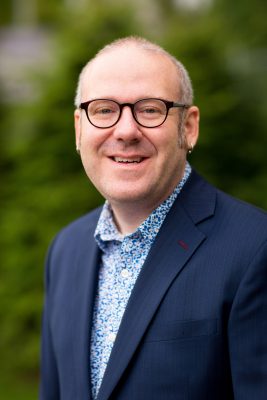How Accessible Sex Ed Helps Young Adults With Developmental Disabilities Form Healthy Relationships

(Mother Jones | Nov/Dec 2023) When he was a teenager, Ben believed that he struggled with friendships and romantic relationships more than others his age. Discerning personal boundaries and finding ways to effectively communicate often bewildered him, and he wasn’t sure what certain signals meant or how many he may have missed. As someone with autism, cerebral palsy, and expressive dysphasia—which means it takes him longer to find the words he wants to use when speaking or writing—he found nearly every encounter with someone he liked or had a crush on fraught with anxiety and confusion.
He was not alone. Many people with intellectual and developmental disabilities are never explicitly taught that the ways a person touches someone else depend on the nature of the relationship, or even what it means for someone to consent. It was only once he was 26, in the spring of 2022, that Ben (not his real name) would be offered a class dedicated to teaching the nuances of those distinctions …
“For folks who don’t get the education, they either learn from their peers, which more often than not, is not completely factual information, or they’re learning from pornography, which of course, is not a complete, accurate picture of sexuality.”
… Some advocacy groups led by people with disabilities have launched smaller initiatives to provide sexual health training for those who seek it out, but if states and school districts don’t offer specific programming tailored to people with disabilities, not everyone will find those resources, says Michael Gill, associate professor of disability studies at Syracuse University and author of Already Doing It: Intellectual Disability and Sexual Agency. “For folks who don’t get the education, they either learn from their peers, which more often than not, is not completely factual information, or they’re learning from pornography, which of course, is not a complete, accurate picture of sexuality,” he says. Whether or not they have accurate information, Gill and other advocates emphasize that young people with disabilities are talking about—and having—sex …
